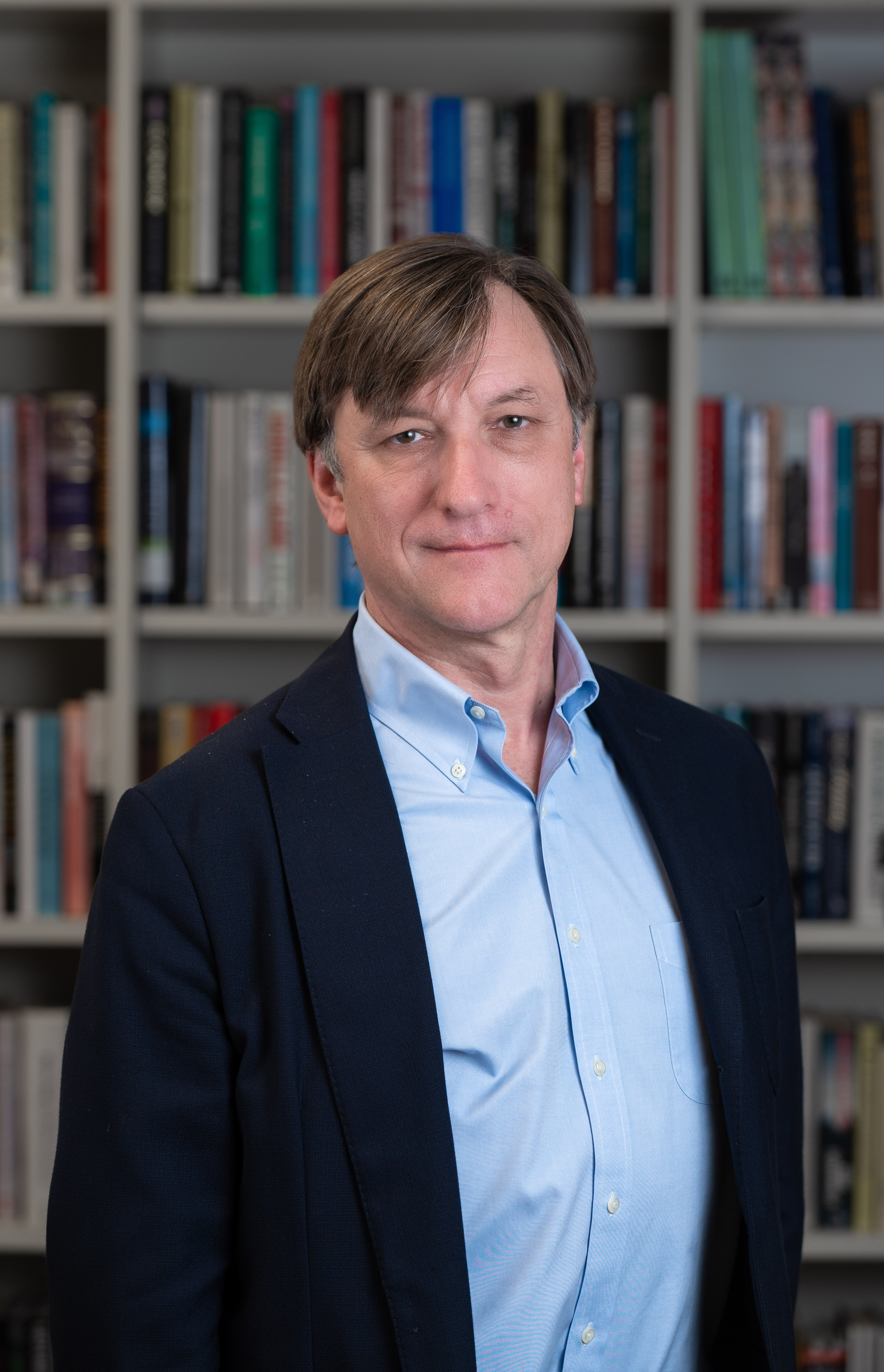Three great companies that will grow for decades
Professional investor Nick Train of the Finsbury Growth & Income Trust, explains his investment strategy, and picks three top quality companies to buy now.

Get the latest financial news, insights and expert analysis from our award-winning MoneyWeek team, to help you understand what really matters when it comes to your finances.
You are now subscribed
Your newsletter sign-up was successful
Want to add more newsletters?

Twice daily
MoneyWeek
Get the latest financial news, insights and expert analysis from our award-winning MoneyWeek team, to help you understand what really matters when it comes to your finances.

Four times a week
Look After My Bills
Sign up to our free money-saving newsletter, filled with the latest news and expert advice to help you find the best tips and deals for managing your bills. Start saving today!
Let’s agree the identity of a handful of great companies from around the world. I know there’s always room for debate about such qualitative matters and you and I might disagree about the qualities that constitute greatness.
But if I table these (all held in Lindsell Train portfolios): Diageo, Kao Corporation (Japan’s Unilever), Heineken, Walt Disney and Unilever itself, I think anyone – after due consideration of these companies’ histories and prospects – would agree they are all great businesses.
What is more – and this is important – if you’d produced the same list ten or even 20 years ago, they’d have been acknowledged as great businesses then too. They weren’t difficult to spot in 2000 or today.
MoneyWeek
Subscribe to MoneyWeek today and get your first six magazine issues absolutely FREE

Sign up to Money Morning
Don't miss the latest investment and personal finances news, market analysis, plus money-saving tips with our free twice-daily newsletter
Don't miss the latest investment and personal finances news, market analysis, plus money-saving tips with our free twice-daily newsletter
It is also important to note that these “great” companies have been great investments over the last 20 years and longer. And when I say great, I mean that their share prices have often gone up many, many times over the decades. They have generally handsomely outpaced the local stockmarket indices they reside in. Take a look.
You would think then that investment was the simplest thing in the world. You just identify a few great businesses, buy their shares and then hold them forever. In fact, this is exactly the strategy we pursue for Finsbury Growth & Income Trust. This strategy is certainly neither original nor clever, but it has been effective for us over the best part of 20 years. Perhaps it will cease to be effective tomorrow – no one’s investment approach can be guaranteed to work in perpetuity – but we propose to stick to it.
Booze begets brand loyalty
We are wary of drawing firm conclusions about the long-term effects of the lockdown and virus. It is still too soon, raw and imponderable. But it seems not imprudent to make two observations. First, through the crisis consumers have remained loyal to beloved and trusted brands and perhaps no more so than with alcohol.
Diageo (LSE: DGE) owns Guinness, Johnnie Walker and Tanqueray. I can’t tell you what Diageo’s sales and profits will be for the next six months or six years. But I can tell you it is highly likely that those brands will still be enjoyed in 60 years’ time.
The same is likely to be true for Heineken (Amsterdam: HEIA) too. For a certain type of investor, us for example, you really don’t need to know very much more.
Next, the pace of technological change – already brisk – is accelerating. Some older great companies are being impaired by this process, while new great companies are emerging. In the UK, we continue to think RELX (LSE: REL), Reed Elsevier as was, is one of the best ways to participate in the changes we’re all experiencing.
The company provides crucial digital data and software services to the global insurance, legal and scientific communities. It is in fact one of the UK’s few great tech companies.
Get the latest financial news, insights and expert analysis from our award-winning MoneyWeek team, to help you understand what really matters when it comes to your finances.
Nick Train co-founded Lindsell Train Limited in 2000. He is the portfolio manager for UK equity portfolios and jointly manages Global portfolios.
Nick has over 40 years’ experience in Investment Management. Before founding Lindsell Train, he was Head of Global Equities at M&G Investment Management, having joined there in 1998 as a Director. Previously he spent 17 years (1981 – 1998) at GT Management which he left soon after its acquisition by Invesco. At his resignation he was a Director of GT Management (London), Investment Director of GT Unit Managers and Chief Investment Officer for Pan-Europe.
Nick has a BA Honours Degree in Modern History from Queen’s College, Oxford.
-
 Can mining stocks deliver golden gains?
Can mining stocks deliver golden gains?With gold and silver prices having outperformed the stock markets last year, mining stocks can be an effective, if volatile, means of gaining exposure
-
 8 ways the ‘sandwich generation’ can protect wealth
8 ways the ‘sandwich generation’ can protect wealthPeople squeezed between caring for ageing parents and adult children or younger grandchildren – known as the ‘sandwich generation’ – are at risk of neglecting their own financial planning. Here’s how to protect yourself and your loved ones’ wealth.
-
 Three key winners from the AI boom and beyond
Three key winners from the AI boom and beyondJames Harries of the Trojan Global Income Fund picks three promising stocks that transcend the hype of the AI boom
-
 RTX Corporation is a strong player in a growth market
RTX Corporation is a strong player in a growth marketRTX Corporation’s order backlog means investors can look forward to years of rising profits
-
 Profit from MSCI – the backbone of finance
Profit from MSCI – the backbone of financeAs an index provider, MSCI is a key part of the global financial system. Its shares look cheap
-
 'AI is the real deal – it will change our world in more ways than we can imagine'
'AI is the real deal – it will change our world in more ways than we can imagine'Interview Rob Arnott of Research Affiliates talks to Andrew Van Sickle about the AI bubble, the impact of tariffs on inflation and the outlook for gold and China
-
 Should investors join the rush for venture-capital trusts?
Should investors join the rush for venture-capital trusts?Opinion Investors hoping to buy into venture-capital trusts before the end of the tax year may need to move quickly, says David Prosser
-
 Food and drinks giants seek an image makeover – here's what they're doing
Food and drinks giants seek an image makeover – here's what they're doingThe global food and drink industry is having to change pace to retain its famous appeal for defensive investors. Who will be the winners?
-
 Barings Emerging Europe trust bounces back from Russia woes
Barings Emerging Europe trust bounces back from Russia woesBarings Emerging Europe trust has added the Middle East and Africa to its mandate, delivering a strong recovery, says Max King
-
 How a dovish Federal Reserve could affect you
How a dovish Federal Reserve could affect youTrump’s pick for the US Federal Reserve is not so much of a yes-man as his rival, but interest rates will still come down quickly, says Cris Sholto Heaton
